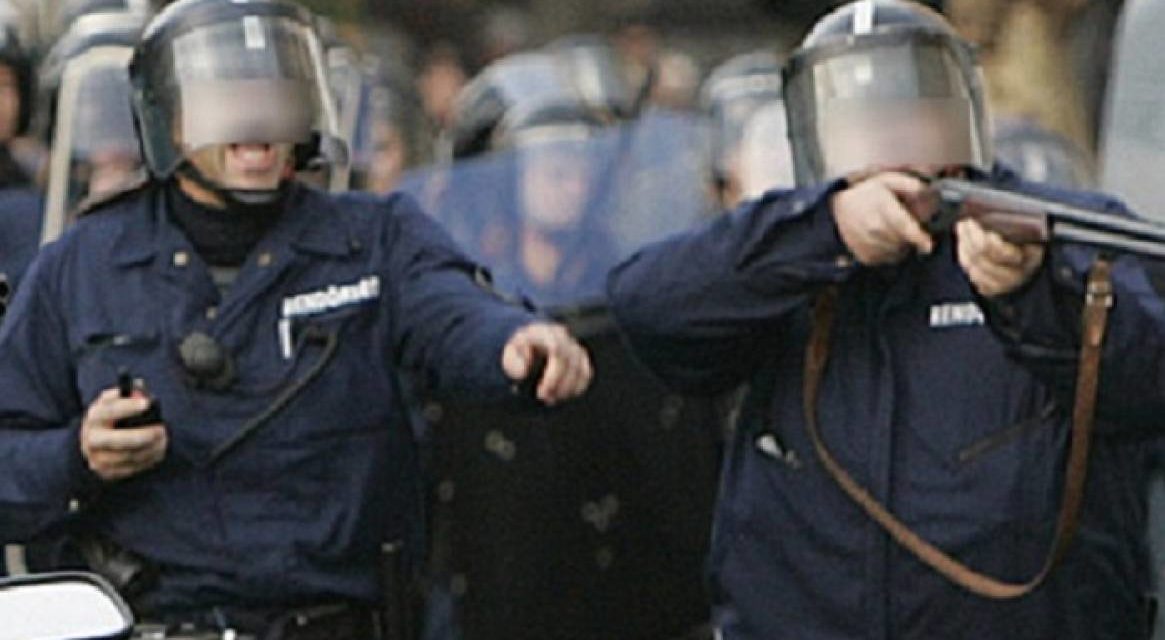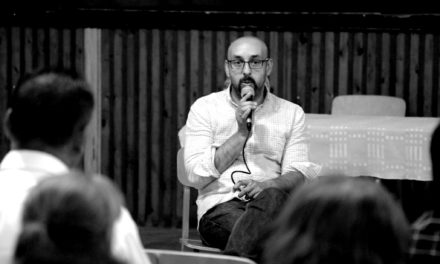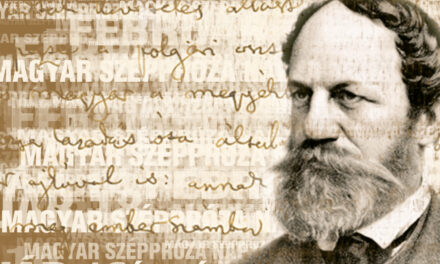The work of the Civil Justice Committee founded by CÖF-CÖKA (e.g. the analysis published on our portal by Tamás Fricz) basically presents the crimes committed during communism, which have not been investigated and thus remained without consequences, but about the most serious crime of the times after the regime change, the 2006 Gyurcsány terrorist attack they didn't forget me either. The analysis of constitutional lawyer Dr. Attila Magyar-Zsolnay presents the antecedents of the brutal police actions, the background of what happened then and the reasons for the lack of accountability.
September 19-21, 2006: Violations against demonstrators
On September 19, 2006, a news item appeared on Index's website: "Ferenc Gyurcsány will be in the control center accompanying the events in the capital late on Tuesday, László Boglár, the Prime Minister's press chief, told MTI early Tuesday evening. […] It is also possible that the Prime Minister spends the night there as well. The prime minister's spokesperson stated that the goal of the control center is to "make all the forces that can be mobilized and mobilized relatively easily and quickly in a coordinated manner" . The prime minister followed the events throughout and was in direct contact with the police leadership.
The next morning, Ferenc Gyurcsány declared with satisfaction: "There is no patience for troublemakers, we must take the most decisive action against them," Ferenc Gyurcsány declared in the public part of the government's Wednesday morning meeting. According to the Prime Minister, there is order in Budapest and Hungary, the police protected people at night. "Last night and early morning, the police restored order with exemplary determination and clarity" . Gábor Demszky, the mayor at the time, also expressed satisfaction with the police action. The term "exemplary", as highlighted in the Report of the Civil Jury Committee, meant that in the following days, the police should consider the night action of September 19-20 as an example against the demonstrators, who were in the wrong place and at the wrong time. can be considered as mental help confirming intent with regard to the assault, serious bodily injury and other crimes committed by the police in official proceedings the following day and
In an interview on September 21, 2006, Ferenc Gyurcsány said the following: "I see that the Hungarian law enforcement is able to respond to this challenge in the quality of Tuesday night and last night, and to maintain order permanently."
A few years later, on September 23, 2010, Ferenc Gyurcsány wrote in a letter to Speaker of the House László Kövér "As Prime Minister, of course, I spoke several times with police chiefs and participated in the meetings of the National Security Cabinet. I am asking for information, an evaluation, and I have also stated my expectations".
Regarding the police violations of September 19-20 and September 20-21, 2006, called "manhunting", it can be established that Ferenc Gyurcsány regularly met with police leaders and gave them instructions of unknown content.
In his televised statement, Gyurcsány considered the actions of the police to be "exemplary" and praised the police leaders for restoring order. It can be concluded from this that the former prime minister certainly expected a strict and decisive action from the police in his order, unknown to us. Due to the intention-strengthening effect of the above praise, the responsibility of the former prime minister as a psychic accomplice to the police violations of October 23, 2006 is raised.
The effect of the October 2006 call of the National Security Office on the exercise of the right to assembly
drawn by Máté Szabó , who took office in 2007, can be considered an insignificant episode. In October 2006, the National Security Office (NBH), whose president during the discussed period Lajos Galambos , and the minister overseeing the office György Szilvásy , issued a "announcement" in which "the potential criminal consequences of passive participation in an illegal act also extended to the peaceful demonstrations the attention of the affected population to possible dangers." LIX of 1993 on Máté Szabó, the Parliamentary Commissioner for Citizens' Rights. TV. Section 16. (2) ordered an ex officio investigation in order to clarify whether the reported disorder, which was not related to a peaceful demonstration, was based on provocation, whether there was a terrorist threat in the country, whether the Office of National Security did not exceed its powers when it called for it in a statement attention to the fact that even passive participation in mass riots can make a citizen a criminal.
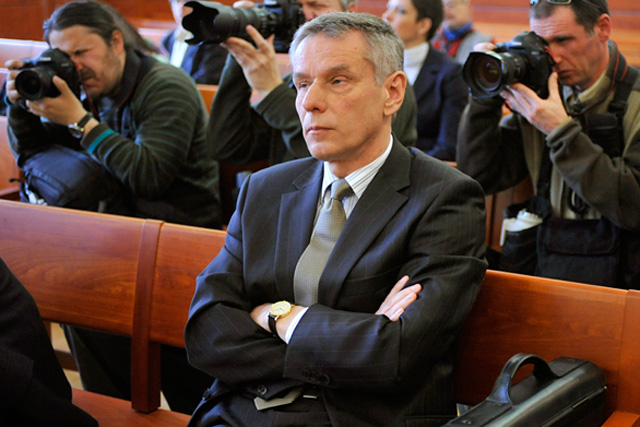
According to György Szilvásy, everything was legal (photo: Origo.hu)
In response to the ombudsman's request for information, György Szilvásy, the minister without portfolio overseeing the secret services, stated that the NBH's law enforcement duties arise when and if they want to change or disrupt the constitutional order of the Republic of Hungary by illegal means, or when they try to influence the state's constitutional organs against the law. Based on the above, Szilvásy concluded that during the autumn 2006 demonstrations, he acted within the scope of the NBH's duties - without exceeding his authority. In his announcement, he drew the attention of citizens who wish to exercise their right to peaceful assembly and the population affected by the demonstration to the potential dangers, including the potential criminal consequences of passive participation in illegal acts. The purpose of this was to prevent the commission of crimes, the announcement - in terms of its content - warned of real dangers, encouraged citizens to behave law-abidingly, and to comply with the legal regulations regarding the exercise of the right to assembly. The ministerial briefing also stated that the NBH consulted and cooperated with the investigative authorities in connection with the events of autumn 2006. He consulted personally with the capital prosecutor and his deputy, as well as with the relevant district prosecutor's office, but the issue of the statement was not the subject of their discussion. György Szilvásy also explained that he did not raise the accusation of provocation in any case, including in connection with the formulation and publication of the statement. There was no violation of state secrets or service secrets in connection with the announcement, since it did not contain classified data.
During Máté Szabó's investigation, he referred to the National Security Office's authority to issue a statement. § 45 of the Constitution. (1) the administration of justice is exercised by the courts, the judgment of the behavior of the participants is the responsibility of the courts in the case of criminal proceedings, and of the violation authorities in the case of infringement proceedings, not the NBH. In its announcement, the NBH gave guidelines to the population on what can be classified as a case where those who were present at the scene of violent acts, but who did not participate in them, but who were there for peaceful purposes, are swept away by the events. 60/1992 of the Constitutional Court. (XI. 17.) explained that: ".documents, circulars, guidelines, guides, resolutions and other informal legal interpretations originating from ministerial and other central state bodies containing legal guidelines, which are not the Jat. are issued in compliance with the guarantee rules, they violate § 2 of the Constitution. (1) of the constitutional requirements of the rule of law... Although the legal interpretation and law application aspects contained in them do not have any legal force or binding content, after they are issued by the central organs of the state administration, they are capable of deceiving the addressees, and the addressees follow them as a mandatory requirement" . The ombudsman found that the NBH acted in a lack of authority, since the Jat. based on its rules, he was not entitled to issue it . "The NBH announcement capable of deceiving citizens is incompatible with the principle of the rule of law, as well as the requirement of legal certainty derived from it, and thus caused injustice in connection with the right to a fair trial of the citizens who accepted it as mandatory".
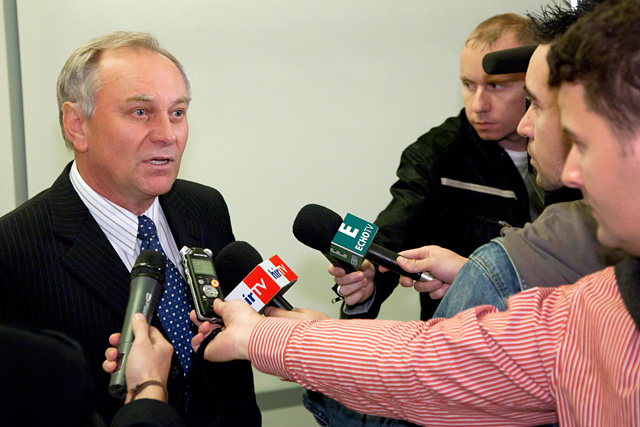
Lajos Galambos is the former president of NBH (photo: Origo.hu)
1995 on the national security services. CXXV. Article 5 of the Act establishes the powers of the National Security Office relevant to the communication in question:
- h) until the investigation is ordered, it carries out crimes against the state (Ctk. XI: chapter), and in its field of operation, escape abroad (Ctk. 343.), mutiny (Ctk. 352.) and endangering combat readiness (Ctk. § 363.) detection of crimes.
- i) investigates the terrorist act (§ 261 of the Civil Code), if the report has been received by the Office of National Security, or the Office of National Security has become aware of it."
In the justification of this law, it is clearly stated that the use of the tools specified in this law or the enforcement of other special rights - and thus the restriction of civil liberties - cannot be carried out by the national security services in other cases. Based on both the ministerial information and the personal conversation with the head of the national security services, the ombudsman found that in October 2006, the NBH was not aware of any terrorist threat that could have given rise to any action against the population, such as issuing a statement. The Parliamentary Commissioner for Fundamental Rights did not accept the minister's argument that the NBH's aim with the announcement was to prevent crimes. According to the law, the National Security Office does not have crime prevention powers. 44/2004 of the Constitutional Court. (XI. 23.) According to its decision No. AB: "In previous decisions, the Constitutional Court recognized the interests related to crime prevention as a constitutional goal arising from the rule of law, in order to secure which even the restriction of some basic rights cannot be ruled out. At the same time, he emphasized in all cases that the rule of law and legal security requirements cannot be abandoned in order to achieve this constitutional goal, and state organs cannot be given too broad, uncertain powers for the sake of crime prevention in the general, abstract sense. The Office of National Security does not carry out crime prevention tasks, it carries out investigative and information-gathering activities in order to substantiate personal or material suspicions of the commission of a crime defined by law, or to rule it out. , police). Máté Szabó did not accept György Szilvásy's argument that the Office of National Security does not need to consult with the prosecutor's office, since it does not exercise legality supervision over the NBH. According to the ombudsman , the National Security Office would have acted correctly if it had consulted with the prosecutor's office as an investigative authority and not as a superior body, thus avoiding the appearance that it was carrying out crime prevention tasks without taking into account the competence of the National Security Agency. The Commissioner of Fundamental Rights therefore came to the conclusion that the NBH also violated the requirement of the rule of law by exceeding its authority and carrying out crime prevention tasks. "And from this, considering that the contents of the announcement could be regarded as mandatory guidelines either by those intending to demonstrate or by those outside of it, there was a direct threat to the citizens' right to peaceful assembly and its free exercise according to the law."
Neither the head of the office nor the minister reported on any terrorist threat or other circumstances that would have justified the issuance of the announcement, thus - according to the ombudsman - when issuing the announcement, he did not comply with the principle of essential necessity for constitutional operation, but disregarded proportionality compliance with the principle and the respect of the limits set by the law on national security services. Based on the above, the Parliamentary Commissioner for Citizens' Rights took the following measures. § 20 of the Act on Parliamentary Commissioners (Obtv.). (1) requested the Prime Minister to ensure that the subordinate bodies of the ministries - subject to Article 60/1992 (XI.17.) In accordance with the AB decision - do not issue the Jat. notices, guidelines, resolutions, other informal legal interpretations containing legal guidelines that do not comply with the warranty rules. Obtv. Section 20. security services to ensure that the NBH does not exceed its powers in the future Obtv. In accordance with Section 21 (1), he initiated with the Director General of the NBH to explain his report to the personnel under his control and to draw their attention to the future avoidance of wrongdoing related to the revealed constitutional rights.
(to be continued)
Author: Attila Magyar-Zsolnay, constitutional lawyer
(Cover image source: NJSZ)

